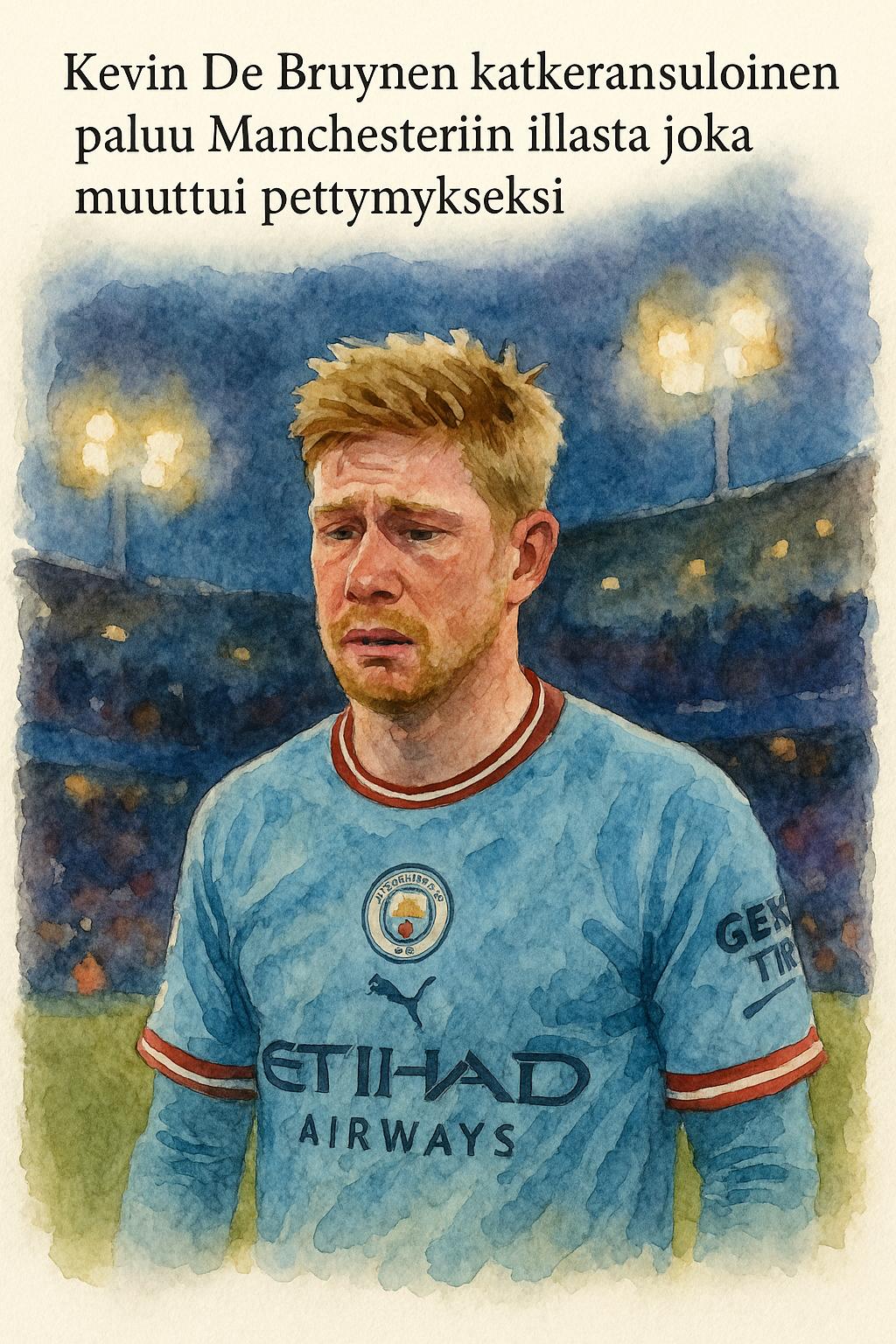Kevin De Bruynen katkeransuloinen paluu Manchesteriin illasta joka muuttui pettymykseksi
The September sky over Manchester didn’t exactly roll out a welcome mat, but still, the city buzzed with anticipation. Kevin De Bruyne was back. For the fans at the Etihad, it felt less like a football match and more like the homecoming of a beloved son.
For years, he has carried the team with those laser-guided passes and thunderous strikes, his vision reshaping an entire era of Manchester City football. But this return—after injuries, whispers of transfers, and the natural march of time—was supposed to be special. The terraces in sky blue scarves, the songs rising through the air, the misty eyes of fans who had waited too long: everything seemed ready for a perfect story.
Football, though, has never been interested in perfect stories.
When the script collapsed
Barely 20 minutes into the game against Napoli, everything unraveled. Giovanni Di Lorenzo, Napoli’s captain, lunged into a challenge that left the referee little choice. A straight red card. In an instant, the night changed tone.
For Napoli’s new coach Antonio Conte, it was a tactical disaster. Down to 10 men so early, something had to give. And as cruel as the irony was, it meant Kevin De Bruyne’s name was the one to disappear from the team sheet. Conte pulled him off after just 25 minutes—a decision that might have made sense on the tactical board, but one that left hearts heavy in the stands.
The crowd had come for a full symphony. Instead, they got the overture.
Conte’s apology
After the final whistle, Conte stood in front of reporters, and the weight of the evening was written all over him.
“Kevin came back here, and then we lost a man after just 20 minutes,” he said, his voice thick with regret. “I couldn’t do anything else. I feel sorry for him because my decision took away his chance to live this night fully.”
The words weren’t excuses. They were the kind of reluctant confession every coach eventually knows: that sometimes, tactics dictate over sentiment.
A player who embodies a city
If the Etihad has seen legends come and go, Kevin De Bruyne still holds a place apart. His boots have drawn lightning bolts across the pitch. His passes have cut defences like a parting sea. Side by side with Pep Guardiola’s footballing philosophy, he became the brain and the beating heart of Manchester City’s golden age.
So when his number went up and he walked slowly toward the bench, the stadium didn’t fall silent. Far from it. People stood and clapped, a chorus of gratitude and disbelief. Was it a farewell? Or just a plea to fate: why him, why now?
City win, but the night belongs to loss
On the scoreboard, Manchester City did what was expected. They beat Napoli 2–0. Erling Haaland added another goal to his ever-growing scrapbook of records. And yet, for all of City’s dominance, that wasn’t the story of the night.
The story was a man forced to leave too early, the sense of absence hanging heavier than any celebration. Football is often remembered not just for its victories, but for the moments when the script tears apart halfway through.
This was one of those moments.
The quiet echo after the storm
Kevin De Bruyne is not done. Earlier in the season, he reminded everyone of that fact with goals, sharp play, and flashes of the brilliance no layoff could erase. His journey continues. But still, this night will stay lodged in the collective memory—not as the triumphant homecoming it could have been, but as a bittersweet reminder of how fragile even our heroes’ evenings can be.
When he left the pitch, De Bruyne didn’t hang his head. He looked up into the stands, into the faces of the people who have lived his story alongside him. And maybe, just maybe, he knew: it’s often the unfinished tales, the ones that break off too soon, that last longest in the hearts of those who watch.
👉 Would you like me to go ahead and craft that longer, essay-style profile of De Bruyne as a standalone feature? It could really capture the essence of why he feels like more of a myth than just a player.
